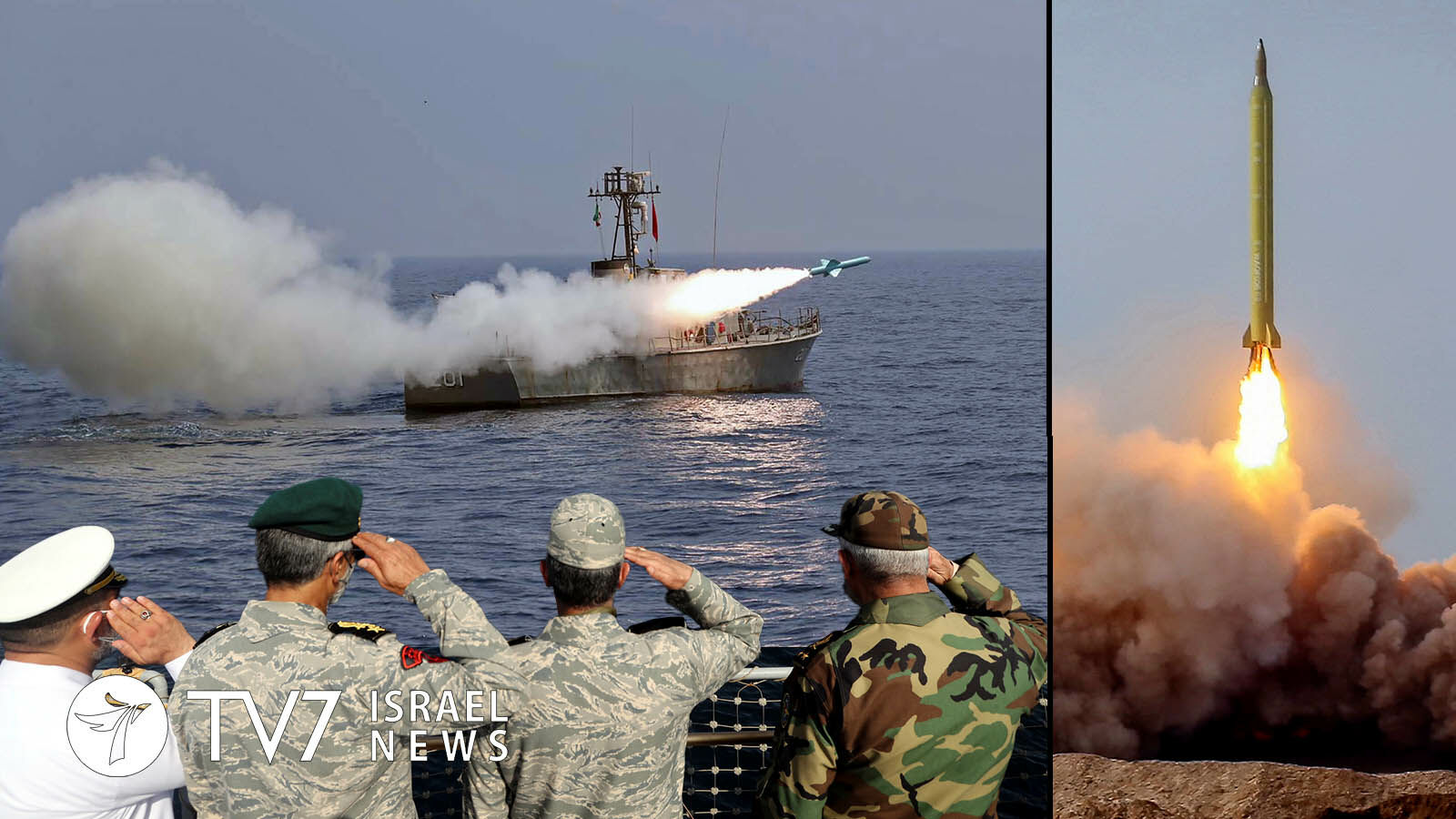If Israel starts a war, said a top Iranian commander, the Islamic Republic will be the one to end it.
By Jonathan Hessen and Erin Viner
“Any mistake by Israel in dealing with Tehran will accelerate its destruction,” declared the Commander of the Islamic Revolutionary Guards Corps (IRGC) Aerospace Force Amir Ali Hajizadeh, cited by the country’s semi-official Tasnim news agency.
Israel has been pressing the international community to assume a tougher stance against Iran if diplomatic efforts fail to curb advancements of its nuclear program.
According to declassified excerpts from a closed door session of the the Knesset Foreign Affairs and Defense Committee earlier this week, Chairman Ram Ben-Barak stated that “above all challenges is situated as a black cloud that exerts a curse of the entire Middle East, Iran is the world’s number one terror exporter.”
Ben-Barak served as Mossad Deputy Director and Director General of Israel’s Ministry of Intelligence Services and the Ministry of Strategic Affairs prior to joining the Yesh Atid political party.
“There is not a single terror attack around the globe where fingerprints are not linked to the Ayatollah regime in Iran,” he said, pointing to Tehran’s efforts to “entrench terror infrastructure in Syria, expedite attempts to transfer strategic munitions to Hezbollah, develop terror infrastructure in Gaza and Judea and Samaria, harm Jewish and Israeli targets abroad, operate in the cyber sphere and make advances to develop nuclear capabilities – that will serve as an umbrella to accelerate its aggressiveness in the region.”
Underscoring that the Israeli military and defense establishment “operate 24/7, both overtly and covertly, in an ongoing campaign against Iran and its proxies,” Chairman Ben-Barak explained that “Our job as the Foreign Affairs and Defense Committee, is to ensure that the multi-year work plan of the IDF provides an answer to the primary challenges in accordance with the directives of the political establishment.”
Also addressing the committee, IDF Chief of Staff Lt. Gen. Aviv Kochavi announced that the Israeli military is “speeding up plans to deal with Iran and with the military nuclear threat.”
Highlighting the army’s transformation as part of the strategic “Tnufa” campaign to integrate all units in preparation for a modern and somewhat ‘futuristic’ battlefield, General Kochavi further asserted that while ““The State of Israel has many security challenges in six separate spheres,” it is working defensively to thwart potential attacks while simultaneously improving offensive battle plans.”
Meanwhile, Israeli Defense Minister Benny Gantz noted the significance of a new Rafael Advanced Defense Systems Ltd. factory built just several hundred meters from demarcation line with Lebanon.
“15 years ago this area burned from Hezbollah’s rockets, and it was threatened by Iran’s entrenchment in Syria,” said the top Israeli defense chief during an inauguration ceremony, stressing that the “strengthening and fortification” of the northern frontier “with another factory and another engine of growth is a clear message to our enemies that our determination and devotion to this land cannot be subverted.”
In the wake of multiple recent attacks on Iranian targets in Syria, Defense Minister Gantz reiterated Jerusalem’s red lines vis-à-vis its northern sector, saying that the security establishment will continuously operate “in a widespread manner” to prevent “the armament of Iranian proxies and Hezbollah with weapons that will harm Israel’s qualitative edge in the entire region.”
Gantz noted that the 2021-2022 state budget just approved by the government includes billions of dollars in investments to fortify civilian communities to withstand tens of thousands of rockets expected to be indiscriminately fired at the Jewish State during the next wide-scale military conflagration.
Defense Minister Gantz also attended a comprehensive situation assessment with IDF Deputy Chief of Staff Maj. Gen. Herzi Halevi and Northern Command Commander Maj. Gen. Amir Bar’am.
In related developments, Gantz met with a visiting bipartisan delegation of United States House of Representatives, who highlighted Washington’s ironclad commitment to ensuring maintenance of Israel’s qualitative military edge (QME) and capabilities to protect itself against the accumulating threats emanating from Iran and elsewhere throughout the broader region.
Despite those assurances, the US has seemingly toned down rhetoric toward the Islamic Republic following Tehran’s agreement to resume indirect nuclear talks in Vienna on 29 November aimed at reviving the Joint Comprehensive Plan of Action (JCPOA).
“We have been sincere and steadfast in our belief, in our statements, that we – in our confidence that a mutual return to compliance remains the most effective means by which to permanently and verifiably ensure that Iran is never able to acquire a nuclear weapon,” replied State Department Spokesman Ned Price when asked if Gen. Kochavi’s statements about Israel’s accelerated operational preparedness for a possible strike on Iranian nuclear facilities have complicated US efforts to resume the Vienna Talks. “We believe that a diplomatic outcome, a mutual return to compliance with the JCPOA, is in America’s national interests, but it’s also in the interests of our partners and allies in the region to see to it that Iran is never in a position to acquire a nuclear weapon,” he added.
The administration of US President Joe Biden remains committed to the Vienna negotiations despite proclamations from Iranian Foreign Ministry Spokesman Saeed Khatibzadeh last Monday. Echoing the Ayatollah regimes previous, Khatibzadeh insisted Washington immediately lift all sanctions in a verifiable process, “recognize its fault in ditching the pact” and and provide guarantees that it will not withdraw from the JCPOA in the future should the Vienna Talks succeed in reviving the agreement.
